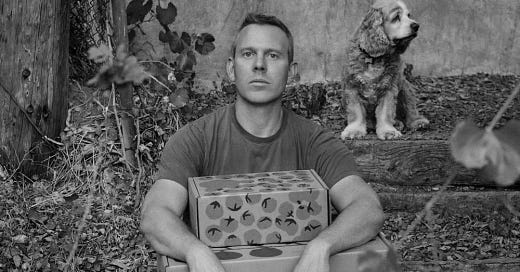Doing Beautiful Things (Richard Christiansen)
Listen now (50 mins) | "I think there's something to be said, but just like the velocity of doing a builder becomes a builder by building a baker, becomes a baker by baking..."
You can also find this episode on Spotify, or wherever you get your podcasts.
I am continually amazed by how quickly Richard metabolizes and moves and by how much he's able to put out into the world at such a high level. Everything Richard creates is incredibly beautiful and special and thoughtful. I became close friends with Richard around the time when…
Keep reading with a 7-day free trial
Subscribe to Pulling the Thread with Elise Loehnen to keep reading this post and get 7 days of free access to the full post archives.





